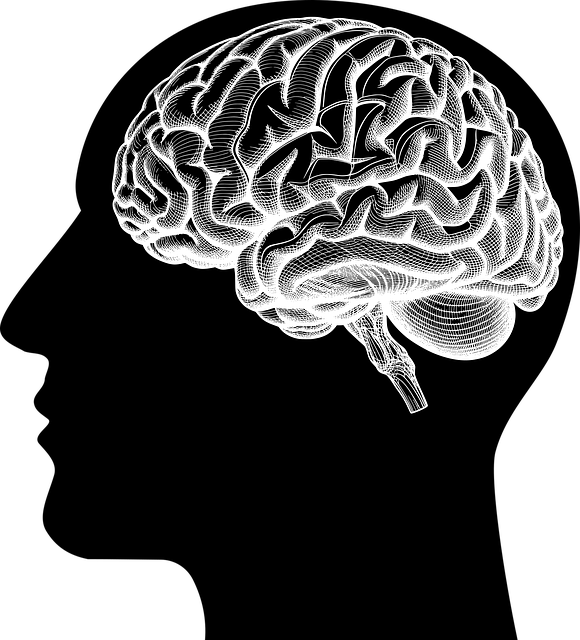Greenwood Village Eating Disorders Therapy prioritizes risk assessment and management, evaluating mental state, history, social context, and triggers to identify potential hazards. This holistic approach creates safe spaces for healing, addressing symptoms while promoting overall well-being. Therapists navigate intense work through self-care, building resilience and preventing burnout. A comprehensive strategy encourages robust self-care, confidence-building, and regular self-awareness exercises to support both staff and clients, ultimately enhancing care quality at Greenwood Village Eating Disorders Therapy.
In the critical field of mental health, risk assessment is an indispensable tool for ensuring patient safety. This article delves into the essential practice of risk evaluation within Greenwood Village Eating Disorders Therapy, focusing on key risks and challenges specific to this domain. We explore strategies for effective risk management, highlighting best practices to foster a secure environment. By understanding these aspects, therapists can enhance their approach, ultimately providing superior care in Greenwood Village Eating Disorders Therapy.
- Understanding Risk Assessment in Mental Health Practice
- Key Risks and Challenges Faced by Eating Disorders Therapists
- Strategies for Effective Risk Management in Greenwood Village Eating Disorders Therapy
Understanding Risk Assessment in Mental Health Practice

In the field of mental health care, risk assessment is a cornerstone of effective practice. It involves systematically evaluating and understanding potential risks or hazards that may impact a client’s well-being. For mental health professionals at Greenwood Village Eating Disorders Therapy, this process is vital to ensure safe and quality care. By identifying and mitigating risks, therapists can create a supportive environment conducive to healing. This includes assessing not only the client’s current mental state but also their history, social context, and potential triggers that could escalate symptoms or lead to adverse outcomes.
Risk assessment goes beyond merely identifying vulnerabilities; it empowers professionals to implement proactive strategies for burnout prevention. By fostering positive thinking and engaging in stigma reduction efforts, therapists can create a non-judgmental space where clients feel empowered to share their struggles openly. This holistic approach ensures that mental health practitioners not only address the symptoms of mental illness but also promote resilience and overall well-being, ultimately enhancing the therapeutic experience for Greenwood Village Eating Disorders Therapy clients.
Key Risks and Challenges Faced by Eating Disorders Therapists

The field of eating disorders therapy presents unique challenges and risks for mental health professionals, particularly those based in Greenwood Village Eating Disorders Therapy centers. One of the primary concerns is the potential for burnout due to the intense and emotionally demanding nature of this work. Therapists often deal with complex cases, requiring significant time, energy, and empathy, which can lead to high stress levels and personal exhaustion if not adequately managed.
Furthermore, therapists working with eating disorders must navigate the delicate balance between encouraging clients towards recovery and fostering a safe space for vulnerability. The sensitive nature of these discussions can expose therapists to risks of emotional distress, especially when dealing with severe cases or hearing traumatic stories. Building resilience is crucial here; therapists need to prioritize self-care routines, including effective stress management techniques, to enhance their ability to support clients while safeguarding their own mental health. Self-esteem improvement and the development of a robust self-care routine become essential tools in navigating these challenges.
Strategies for Effective Risk Management in Greenwood Village Eating Disorders Therapy

In Greenwood Village Eating Disorders Therapy, effective risk management involves a multi-faceted approach tailored to address the unique challenges faced by mental health professionals. Strategies for mitigating risks include implementing robust self-care practices among therapists, emphasizing confidence-boosting techniques for both professionals and clients, and encouraging regular self-awareness exercises to help identify and manage potential triggers early on.
By fostering an environment that prioritizes these strategies, Greenwood Village Eating Disorders Therapy ensures a supportive setting where mental health professionals can maintain their well-being while providing compassionate care. This proactive approach not only protects therapists from burnout but also enhances the quality of treatment they deliver, ultimately benefiting clients seeking recovery from eating disorders.
Mental health professionals, especially those specializing in eating disorders therapy like Greenwood Village Eating Disorders Therapy, must prioritize risk assessment as a vital tool for patient safety and practice integrity. By identifying potential risks early on, therapists can implement tailored strategies to mitigate challenges, ensuring a secure and effective therapeutic environment. This proactive approach not only enhances the well-being of both clients and practitioners but also strengthens the overall efficacy of eating disorders treatment in Greenwood Village and beyond.














